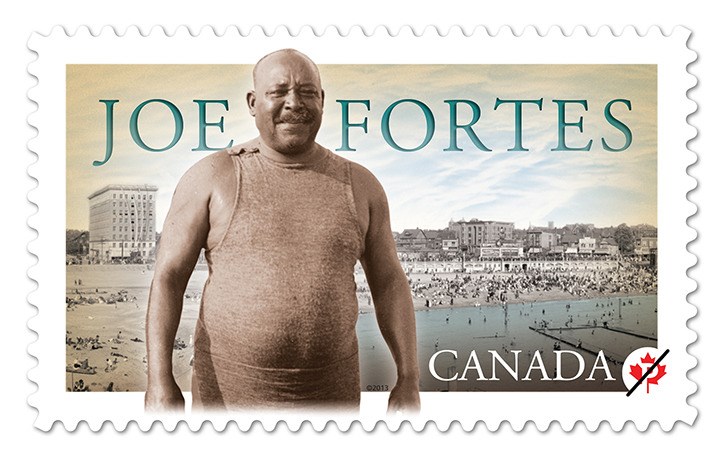When Joe Fortes died in 1922, thousands of Vancouverites went to his funeral, which was paid for by the City of Â鶹´«Ã½Ó³»as a way of honoring his contributions to city life. It was an extraordinary legacy for a portly black man who arrived here from the West Indies in 1885 and moved into a tent on English Bay.
His legacy is being honoured again as part of Black History Month. On Feb. 1, city councillors unveiled a stamp of Fortes in his ubiquitous swimming trunks. His image is superimposed on a drawing of the beach where he taught hundreds of children how to swim and spent his days as a lifeguard, keeping the area safe for everyone.
A few days earlier at the Scotia Dance Centre, the National Congress of Black Women Foundation paid tribute to some of the men who have followed in Fortes footprints. The six honorees Extraordinary Men, Extraordinary Presence have devoted themselves to making Â鶹´«Ã½Ó³»a culturally rich place to live.
Their contributions enrich us all, said the nights emcee, Lolly Bennett.
She helps organize the annual event because I want people to celebrate that there is a rooted black culture in Vancouver. The root is solid and everything that goes on now is a result of those roots.
Last year the foundation recognized several women so this year it felt the men deserved a round of applause. We wanted to make sure they know they had an impact on people.
As poet Juliane Okot Bitek noted in her spoken word tribute, None of us walks alone. We never got here by ourselves.
This years honorees are:
Twins Ronald and Robert Crump. As four-year-olds, they moved to the Â鶹´«Ã½Ó³»neighborhood known as Hogans Alley in 1943. They were inseparable, whether it was as a tap dance and music duo who performed with the likes of Sammy Davis Jr., or working on Vancouvers waterfront, where they were the first black men allowed to operate a diesel electric train.
Melville Warner. An entrepreneur and producer extraordinaire, hes been booking shows through Melo Productions for decades. World Beat, Latin, Reggae, Soca, African he loves them all. Hes also a chemical engineer whos worked for the federal government for more then 30 years.
George Barrett. When he emigrated from Jamaica, he made sure there was lots of room in his suitcase for his record collection. In 1976, he began sharing that music with listeners of Co-op Radio and then, in 1982, hosting a show called The Rockers on UBCs radio station, CITR 101.9. For those who like to listen to him live, he has a mobile sound system business called Wadada Hi Fi Sound.
Lloyd Davis Jr. In 1854, his ancestors came to Canada on the Underground Railroad. Born in Toronto, he moved to Â鶹´«Ã½Ó³»in 1985 and is now retired from Air Canada. He too hosts a show on Co-op Radio, One OClock Jump, which features jazz. He feels our education system doesnt do enough to recognize the many contributions of Afro Canadians and endeavors to right this wrong through seminars on Afro Canadian history and Prince Hall Free Masonry.
George Jolly. After a career with the US Navy (he was born in Chicago), Jolly moved to British Columbia and became a registered social worker with a special interest in mental health. He coached community football and high school basketball, and also hosted a jazz show on Co-op Radio. He became a Freemason in 1978.
As part of the evenings festivities, the foundations executive director, Nalda Callender, was presented with a Queen Elizabeth II Diamond Jubilee Medal for her community work.



